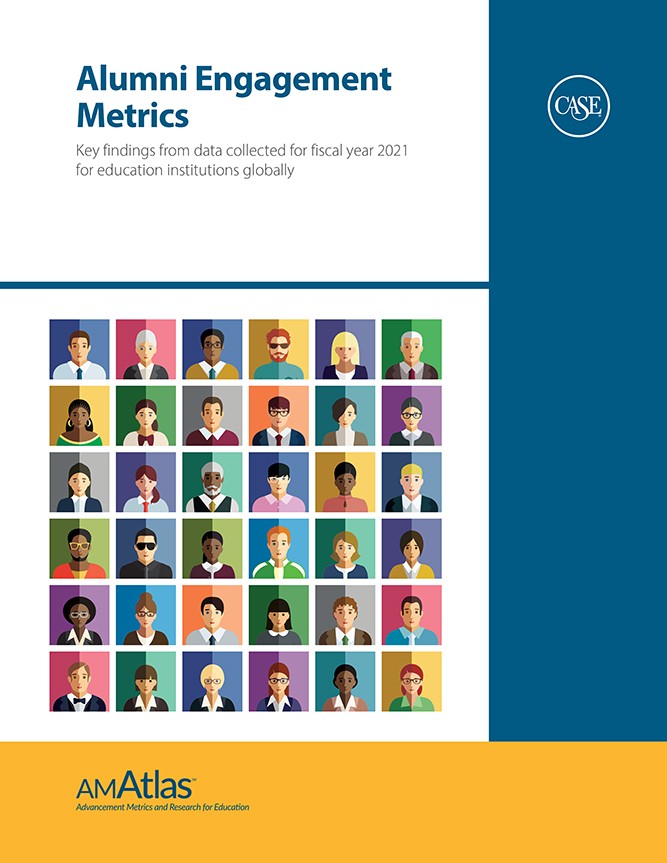New Insights from the Latest Global Alumni Engagement Metrics Report

CASE released the third global Alumni Engagement Metrics report in July. Now, with three years of solid data, advancement professionals can look at alumni metrics in a deeper, more profound way—using measurements that go beyond a limited view of simply measuring alumni giving participation rates.
The survey measures alumni engagement in four modes: philanthropic, volunteerism, experiential, and communications. For the 2022 survey, 365 institutions across 19 countries grouped in five regions submitted data. The report presents findings by region, type of institution, and whether the institution is public or private.
“What has been special about this survey is that it has been global from the outset, enabling institutions across all four of CASE’s regions—Asia-Pacific, Europe, Latin America, and the United States/Canada—to participate in a truly worldwide benchmarking study on alumni engagement,” said Sue Cunningham, CASE President and CEO.
CASE Global Reporting Standards define the importance of alumni engagement: “Alumni relations professionals develop programs that are valued by alumni; build enduring and mutually beneficial relationships, inspire loyalty, volunteerism, and financial support; strengthen the institution’s reputation; and involve alumni in meaningful activities to advance the institution’s mission.”
In 2016, the CASE Commission on Alumni Relations created the Alumni Engagement Metrics Task Force to address the need for an industry-wide framework to measure alumni engagement metrics. The volunteer task force focused on engagement activity that can be measured in a consistent manner and can be applied to the broad spectrum of CASE member organizations around the globe: colleges and universities; independent schools; community colleges; and private, public, small, and large institutions. In 2019, CASE launched the first survey as a pilot.
“Now in the third year of the survey, we have a solid cohort allowing us to have a stable view with reliable outcomes,” said Jenny Cooke Smith, Senior Director of AMAtlas Services. “Up until 2018, there was no consensus in the industry on how to count engagement.”
Among the findings, in all three years of the survey, multiple-degree alumni engaged at higher rates in all four modes.
“The finding is notable because most institutions have not messaged, created programming for, solicited, or stewarded this population in unique ways,” noted the report’s author, Ann Kaplan, CASE’s Senior Director, Voluntary Support of Education.
The data also confirm that engagement leads to giving. “So much of giving is a result of stewardship and relationship building,” said Cooke Smith. “The survey also shows us that the more an institution invests in alumni relations, the more an institution reaps the rewards of that investment, especially in terms of more staffing and more engagement.”
The data support the fact that when alumni are engaged in one way, they are more likely to be engaged in other ways, thus enhancing their connection to the institution.
The survey also supports the importance of fostering and understanding the benefits of integrated advancement and working with campus partners.
“From year one, we heard that a positive outcome of participating in the survey was that it led people to engage and collaborate both within and outside of advancement,” said Cooke Smith. “Successfully engaging alumni means connecting across campus, with partners such as libraries, athletics, hospitals—all facets of your institution speaking as one.”
Another goal of the survey is to help members understand where their institutions fit, how they are doing, where they might improve, what they can learn from other institutions, and what other institutions can learn from them.
It all begins with participation. CASE encourages members to participate in the upcoming AEM survey opening this September. Participants receive a complimentary Graphical Program Summary report including interactive charts and data sets for select variables for their individual institution and associated peers.
About the author(s)
Ellen N. Woods is Writer/Editor at CASE.







